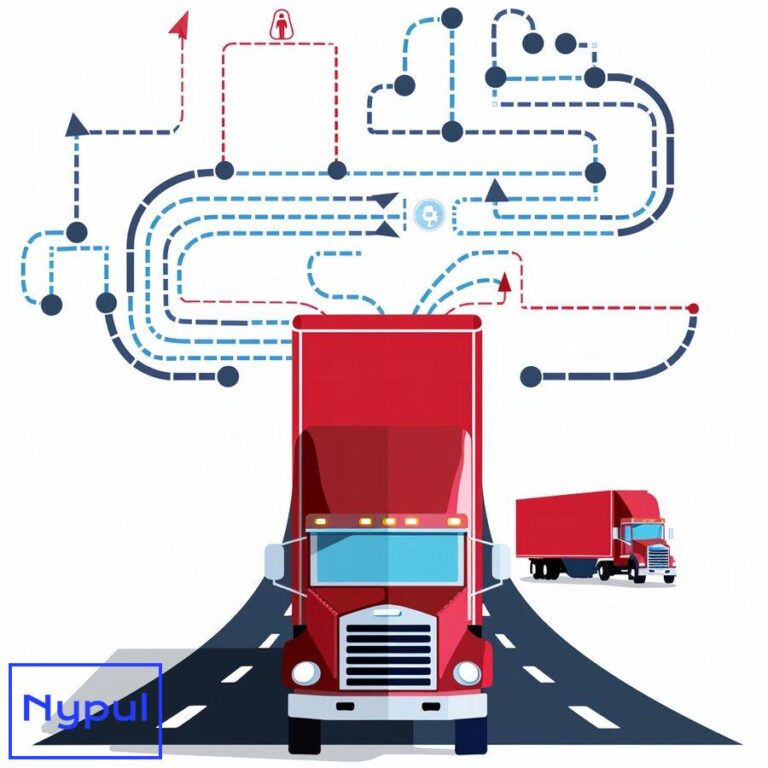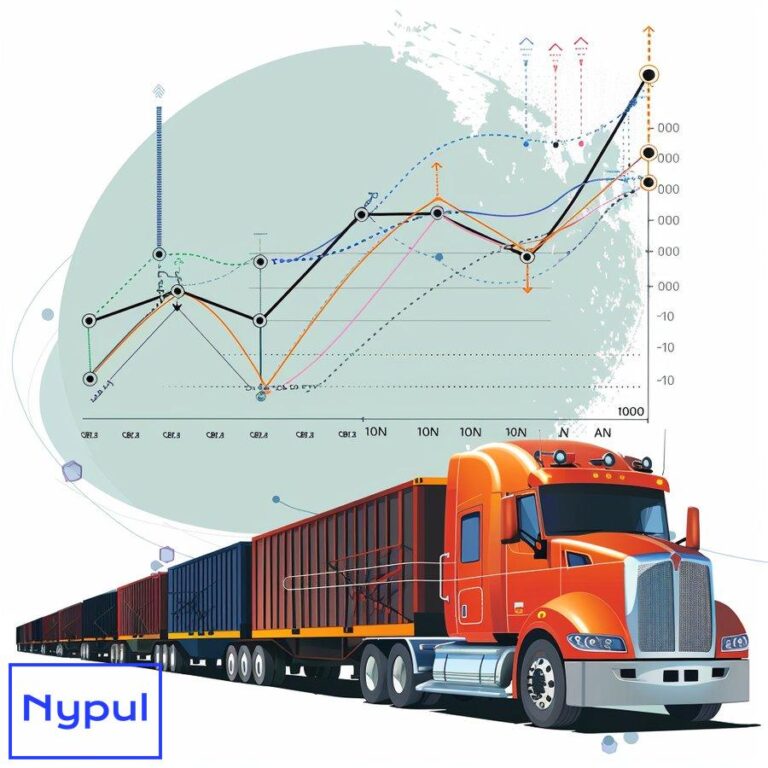What Is the Best Option for Time Sensitive Cargo
What defines time-sensitive cargo?
Time-sensitive cargo refers to shipments that require expedited delivery within a specific timeframe to maintain their value, quality, or usability. These shipments often involve products or materials that are critical to business operations, have short shelf lives, or are needed urgently at their destination.
The key characteristics that define time-sensitive cargo include:

Strict delivery deadlines
Time-sensitive shipments have little to no flexibility in their delivery schedules. They must arrive within a designated timeframe, often measured in hours or days rather than weeks. Missing these deadlines can result in significant financial losses, production delays, or other negative consequences.
High value or importance
The cargo being transported is typically of high value or critical importance to the recipient. This could include items like:
- Perishable goods (e.g. fresh produce, flowers, seafood)
- Medical supplies and pharmaceuticals
- Critical manufacturing components
- Emergency replacement parts
- Legal documents with filing deadlines
- Live animals
Special handling requirements
Many time-sensitive shipments require specialized handling to maintain their integrity during transit. This may include temperature-controlled environments, gentle handling procedures, or enhanced security measures.
Urgency
There is a pressing need for the cargo to reach its destination quickly, often due to unforeseen circumstances or tight production schedules. This urgency distinguishes time-sensitive cargo from regular shipments that can tolerate some delay.
Limited shelf life
Some time-sensitive cargo has a short lifespan or expiration date, necessitating rapid transport to ensure it reaches the end-user while still viable. This is especially true for perishable goods and certain medical supplies.
Economic impact
Delays in delivering time-sensitive cargo can have significant economic repercussions, such as production line shutdowns, missed market opportunities, or contractual penalties.
Understanding these defining characteristics is crucial for shippers and logistics providers to properly handle and prioritize time-sensitive cargo. It requires careful planning, specialized equipment, and often premium shipping services to ensure these critical shipments reach their destination on time and in optimal condition.
How do different industries rely on time-sensitive shipments?
Various industries depend heavily on time-sensitive shipments to maintain their operations, meet customer demands, and stay competitive in the market. Let’s explore how different sectors utilize and rely on expedited shipping solutions:

Healthcare and Pharmaceuticals
The healthcare industry relies extensively on time-sensitive shipments for various critical needs:
- Organ transplants: Organs have extremely short viability windows, often just hours, requiring immediate transport.
- Blood and plasma: These perishable products need swift delivery to hospitals and clinics.
- Vaccines and temperature-sensitive medications: Many pharmaceuticals require strict temperature control and rapid delivery to maintain efficacy.
- Medical equipment: Urgent shipments of specialized devices or replacement parts are often needed for life-saving procedures.
Manufacturing and Automotive
Just-in-time manufacturing processes depend on precisely timed deliveries:
- Production line components: Delays in receiving critical parts can halt entire assembly lines, causing significant financial losses.
- Prototype parts: Quick delivery of prototype components is crucial for timely product development and testing.
- Emergency repairs: Rapid shipment of replacement parts is essential to minimize downtime in manufacturing facilities.
Technology and Electronics
The fast-paced tech industry frequently requires expedited shipping:
- New product launches: Coordinated global releases often involve time-sensitive shipments to retailers.
- Warranty replacements: Quick turnaround on device repairs or replacements is crucial for customer satisfaction.
- Data center equipment: Urgent delivery of servers or networking equipment is vital to maintain business continuity.
Fashion and Retail
Time-sensitive shipments play a crucial role in the fashion industry:
- Fast fashion: Retailers rely on quick turnaround times to keep up with rapidly changing trends.
- Seasonal collections: Timely delivery of new collections is essential to maximize sales during peak seasons.
- E-commerce fulfillment: Meeting same-day or next-day delivery promises requires efficient time-sensitive logistics.
Food and Beverage
Perishable goods require swift transportation to maintain freshness:
- Fresh produce: Fruits and vegetables have limited shelf lives and must reach markets quickly.
- Seafood: Many seafood products require rapid, temperature-controlled transport to preserve quality.
- Specialty foods: Artisanal and gourmet products often have short shelf lives and require expedited shipping.
Media and Entertainment
Time-sensitive deliveries are crucial in the entertainment industry:
- Film reels and equipment: Movie theaters require timely delivery of new releases and specialized projection equipment.
- Live event equipment: Concerts and sporting events depend on rapid transport of stage equipment and merchandise.
- Breaking news coverage: Media outlets rely on quick delivery of recording equipment and footage.
Aerospace and Defense
Critical components and sensitive materials often require expedited shipping:
- Aircraft on ground (AOG) situations: Grounded aircraft need immediate delivery of replacement parts to minimize costly downtime.
- Military operations: Urgent shipments of supplies and equipment are essential for defense readiness.
Legal and Financial Services
Time-sensitive document delivery is crucial in these sectors:
- Court filings: Legal documents often have strict submission deadlines that require guaranteed delivery times.
- Financial transactions: Certain financial instruments and contracts may require physical delivery within specific timeframes.
Understanding how these diverse industries rely on time-sensitive shipments highlights the critical role that efficient logistics and transportation play in modern business operations. Each sector has unique requirements and challenges, necessitating tailored solutions and expertise from logistics providers to ensure that time-critical cargo reaches its destination promptly and securely.
Which factors should be considered when choosing a time-sensitive shipping option?
Selecting the right shipping option for time-sensitive cargo requires careful consideration of various factors to ensure the shipment arrives on time, in good condition, and at a reasonable cost. Here are the key factors to evaluate when choosing a time-sensitive shipping option:
Delivery timeframe
The most critical factor is the required delivery timeframe. Consider:
- Exact deadline for delivery
- Potential consequences of late arrival
- Time sensitivity of the cargo (e.g., perishables vs. urgent documents)
- Transit time offered by different shipping methods
Distance and route
The shipping distance and route complexity significantly impact the choice of transport mode:
- Domestic vs. international shipments
- Direct routes vs. multi-stop journeys
- Availability of expedited services for specific routes
- Potential for customs delays in international shipping
Cargo characteristics
The nature of the cargo itself plays a crucial role in determining the appropriate shipping option:
- Size and weight of the shipment
- Special handling requirements (e.g., temperature control, fragility)
- Dangerous goods classification
- Value of the cargo and insurance needs
Cost considerations
While speed is crucial for time-sensitive shipments, cost remains an important factor:
- Budget constraints
- Cost-benefit analysis of faster shipping methods
- Additional fees for expedited services
- Potential costs of late delivery (e.g., contractual penalties)
Reliability and track record
The reliability of the shipping method and carrier is paramount for time-sensitive cargo:
- Carrier’s on-time performance statistics
- Frequency of delays or issues
- Ability to provide real-time tracking and updates
- Contingency plans for potential disruptions
Flexibility and adaptability
Time-sensitive shipments may require adjustments en route:
- Ability to change destination or delivery instructions
- Options for expediting a shipment already in transit
- Availability of alternative routing in case of unforeseen events
Security and safety
Protecting valuable or sensitive cargo during expedited transport is crucial:
- Security measures offered by different shipping methods
- Risk of theft or tampering during transit
- Compliance with industry-specific regulations (e.g., pharma, defense)
Environmental impact
Some shippers may need to consider the environmental implications of their shipping choices:
- Carbon footprint of different transport modes
- Availability of eco-friendly expedited options
- Compliance with corporate sustainability goals
Pickup and delivery options
The specifics of origin and destination can influence the shipping choice:
- Availability of door-to-door service
- Need for special equipment at pickup or delivery locations
- Access restrictions at origin or destination
Technology and visibility
Advanced tracking and communication capabilities are essential for managing time-sensitive shipments:
- Real-time tracking and status updates
- Proactive alert systems for potential delays
- Integration with shipper’s supply chain management systems
To illustrate how these factors might be weighted in different scenarios, consider the following comparison table:
| Factor | Urgent Medical Supplies | Fashion Retail New Collection | Critical Manufacturing Component |
|---|---|---|---|
| Delivery timeframe | Highest priority (hours) | High priority (days) | High priority (1-2 days) |
| Distance | International | Domestic | Regional |
| Cargo characteristics | Temperature-sensitive, regulated | High-value, volume shipment | Precision-engineered, fragile |
| Cost considerations | Secondary to speed | Important, but flexible | Balanced with urgency |
| Reliability | Critical | Very important | Critical |
| Flexibility | Moderate need | Low need | High need |
| Security | High priority | Moderate priority | High priority |
| Environmental impact | Low consideration | Moderate consideration | Low consideration |
| Pickup/delivery | 24/7 availability crucial | Standard business hours acceptable | Extended hours beneficial |
| Technology/visibility | Real-time updates essential | Daily updates sufficient | Hourly updates preferred |
By carefully evaluating these factors and understanding their relative importance for each specific shipment, shippers can make informed decisions about the best time-sensitive shipping option to meet their needs. This thoughtful approach helps balance the often-competing demands of speed, cost, reliability, and special handling requirements in time-critical logistics.
Why is air freight often preferred for urgent shipments?
Air freight is frequently the go-to choice for urgent shipments due to its unparalleled speed and global reach. This mode of transportation offers several distinct advantages that make it particularly well-suited for time-sensitive cargo:
Unmatched speed
Air freight provides the fastest transit times of any shipping method:
- Intercontinental shipments can arrive within 1-3 days
- Domestic shipments often reach their destination within hours
- Reduced transit time minimizes the risk of product degradation for perishables
Global connectivity
The extensive network of airports and flight routes offers unparalleled reach:
- Direct access to major cities worldwide
- Ability to reach remote locations more quickly than other transport modes
- Frequent flight schedules provide multiple shipping options daily
Reliability and predictability
Air freight operates on strict schedules, offering high reliability:
- Flights adhere to fixed timetables, barring extreme circumstances
- Weather-related delays are less common than with ground transportation
- Streamlined customs processes at airports expedite international shipments
Enhanced security
Air cargo undergoes rigorous security measures:
- Strict screening protocols reduce the risk of theft or tampering
- Controlled access to air cargo facilities enhances shipment safety
- Reduced handling and shorter transit times lower the chances of loss or damage
Flexibility for urgent needs
Air freight provides options for extremely time-sensitive situations:
- Next Flight Out (NFO) services for critical shipments
- Charter flights available for large or unique urgent cargo
- Ability to quickly reroute shipments if needed
Cost-effective for high-value goods
Despite higher per-unit shipping costs, air freight can be economical for certain cargo:
- Reduced inventory carrying costs due to faster transit times
- Lower insurance premiums for high-value goods due to shorter risk exposure
- Potential cost savings from avoiding production delays or missed deadlines
Specialized handling capabilities
Airports and air freight carriers offer advanced facilities for special cargo:
- Temperature-controlled storage and transportation for pharmaceuticals and perishables
- Specialized equipment for handling oversized or oddly shaped urgent cargo
- Hazardous materials handling capabilities for time-sensitive dangerous goods
Simplified documentation
Air freight often involves more straightforward paperwork:
- Standardized air waybills streamline the shipping process
- Electronic documentation systems speed up customs clearance
- Fewer intermediaries in the supply chain simplify tracking and communication
Environmental considerations
While air freight has a higher carbon footprint per ton-mile, it can have some environmental benefits in certain scenarios:
- Reduced need for energy-intensive cold chain logistics due to shorter transit times
- Less packaging required due to reduced handling and exposure to elements
- Potential for combining passenger and cargo transport on the same flights
To illustrate the advantages of air freight for different types of urgent shipments, consider the following comparison table:
| Advantage | Pharmaceutical Products | Emergency Replacement Parts | High-Value Electronics |
|---|---|---|---|
| Speed | Critical for temperature-sensitive medications | Essential to minimize production downtime | Important for meeting market demand |
| Global reach | Enables rapid distribution to multiple markets | Allows quick delivery to remote manufacturing sites | Facilitates simultaneous global product launches |
| Reliability | Crucial for maintaining efficacy and safety | Vital for just-in-time manufacturing processes | Important for coordinated retail restocking |
| Security | Essential for protecting high-value, regulated products | Important for safeguarding proprietary technologies | Critical for preventing theft of valuable goods |
| Flexibility | Allows for last-minute production or formulation changes | Enables rapid response to unexpected equipment failures | Facilitates agile response to shifting market demands |
| Cost-effectiveness | Justified by high product value and short shelf life | Offset by avoiding costly production stoppages | Balanced against potential lost sales opportunities |
| Specialized handling | Temperature-controlled containers crucial | Custom packaging for delicate components beneficial | Anti-static and shock-resistant handling important |
While air freight offers numerous advantages for urgent shipments, it’s important to note that it may not always be the best choice for every situation. Factors such as shipment size, budget constraints, and specific origin-destination pairs may sometimes favor other modes of transportation. However, for many time-sensitive scenarios, the speed, reliability, and global reach of air freight make it the preferred option for ensuring critical cargo reaches its destination on time.
When is expedited ground transportation the best choice?
Expedited ground transportation, while not as fast as air freight, can be the optimal choice for time-sensitive shipments in certain scenarios. This mode of transport offers a balance between speed and cost-effectiveness, making it suitable for various urgent delivery needs. Here are the situations where expedited ground transportation often emerges as the best option:
Regional or domestic shipments
For shorter distances within a country or region, ground transport can be highly efficient:
- Delivery times competitive with air freight for distances up to 500-1000 miles
- More frequent departure options compared to flight schedules
- Ability to reach locations not serviced by nearby airports
Large or heavy shipments
When cargo exceeds air freight weight or size limitations:
- Cost-effective for bulky items that would incur significant dimensional weight charges by air
- Suitable for oversized equipment or machinery that requires special handling
- Ability to accommodate hazardous materials with fewer restrictions than air transport
Mid-range urgency
When delivery is time-sensitive but not requiring same-day or overnight service:
- Ideal for shipments needed within 2-3 days
- Balances speed with cost-effectiveness for many business-critical deliveries
- Allows for more flexible pickup and delivery schedules than air freight
Cost considerations
In situations where budget constraints are a significant factor:
- Generally more affordable than air freight, especially for heavier shipments
- Fewer accessorial charges compared to air transport
- Potential for consolidating multiple shipments to reduce costs
Special handling requirements
Certain types of cargo benefit from the continuous monitoring possible with ground transport:
- Temperature-sensitive goods requiring constant climate control
- Fragile items that may be better protected from shocks and vibrations in ground vehicles
- High-value shipments requiring continuous security monitoring
Customs and border considerations
For international shipments where ground crossing is more efficient:
- Avoids potential delays associated with air cargo customs clearance at busy airports
- Allows for in-transit customs clearance, potentially reducing overall transit time
- Beneficial for shipments between countries with streamlined border crossing procedures (e.g., within the EU)
Flexibility and control
Ground transportation offers greater adaptability in certain aspects:
- Easier to make last-minute changes to routing or destination
- Ability to add stops for multi-point deliveries
- Option for driver-accompanied transport for high-value or sensitive cargo
Environmental concerns
When reducing carbon footprint is a priority:
- Lower emissions per ton-mile compared to air freight
- Opportunity to use alternative fuel vehicles for reduced environmental impact
- Aligns with corporate sustainability goals while still meeting time-sensitive needs
Infrastructure considerations
In regions with well-developed road networks but limited air cargo facilities:
- More reliable and predictable transit times due to extensive highway systems
- Less susceptible to weather-related delays compared to air transport in certain regions
- Ability to reach remote locations more directly than air freight combined with local delivery
To illustrate when expedited ground transportation might be the best choice, consider the following comparison table for different shipping scenarios:
| Scenario | Distance | Urgency | Cargo Type | Best Option | Reasoning |
|---|---|---|---|---|---|
| Manufacturing parts | 600 miles | Next day delivery | Palletized goods | Expedited Ground | Cost |
| ———- | ———- | ——— | ———— | ————- | ———– |
| Manufacturing parts | 600 miles | Next day delivery | Palletized goods | Expedited Ground | Cost-effective and faster than air for heavy shipments. |
| Medical supplies | 300 miles | Same-day delivery | Temperature-sensitive items | Expedited Ground | Provides reliable temperature control and quick transit. |
| E-commerce returns | 200 miles | 2-day delivery | Consumer electronics | Expedited Ground | Economical for bulky items with moderate urgency. |
| Automotive parts | 800 miles | 2-day delivery | Heavy machinery components | Expedited Ground | Avoids high air freight costs while meeting production schedules. |
| Perishable food items | 400 miles | Next day delivery | Fresh produce | Expedited Ground | Allows for temperature-controlled transport without air freight costs. |
Expedited ground transportation serves as a versatile option for time-sensitive shipments, particularly when distance, cargo characteristics, and cost considerations align. It provides a practical solution that meets urgent delivery needs while balancing speed and affordability, making it an attractive choice for many businesses.
How do express courier services cater to time-sensitive needs?
Express courier services have emerged as a vital component of the logistics landscape, specifically designed to meet the demands of time-sensitive shipments. These services offer rapid delivery options tailored to the unique requirements of various industries and types of cargo. Here’s how express courier services cater to time-sensitive needs:
Speed and efficiency
Express couriers prioritize speed, ensuring that shipments reach their destinations as quickly as possible:
- Same-day or next-day delivery options are standard, catering to urgent requests.
- Streamlined processes minimize handling times and optimize routing.
- Dedicated vehicles or flights may be used for critical deliveries.
Flexible service levels
Express courier services provide various service levels to accommodate different urgency levels:
- Standard express: Fast delivery within 1-3 business days.
- Priority express: Guaranteed next-day delivery for urgent shipments.
- Same-day service: Immediate pickup and delivery within hours.
Wide coverage
Express couriers offer extensive networks that enable them to reach a broad range of destinations:
- Global reach with partnerships across multiple countries.
- Local expertise ensures efficient navigation of regional logistics challenges.
- Ability to serve remote locations that may not be accessible by traditional carriers.
Real-time tracking and visibility
Modern express courier services incorporate advanced technology to enhance shipment visibility:
- Real-time tracking allows shippers and recipients to monitor progress at every stage.
- Automated notifications provide updates on shipment status and estimated arrival times.
- Enhanced visibility helps identify potential delays early, allowing for proactive solutions.
Specialized handling capabilities
Express couriers often have specialized services tailored to specific cargo types:
- Temperature-controlled transport for pharmaceuticals or perishables.
- Secure handling for high-value items or sensitive documents.
- Options for fragile goods requiring careful packaging and handling.
Simplified documentation
Express courier services streamline the paperwork process, making it easier for shippers:
- Pre-filled shipping labels reduce errors and save time during the shipping process.
- Electronic documentation systems facilitate faster customs clearance for international shipments.
- Clear guidelines on required documentation help ensure compliance with regulations.
Customer support
Dedicated customer support is a hallmark of express courier services:
- 24/7 customer service teams assist with inquiries and issues.
- Personal account managers may be assigned to key clients for tailored support.
- Proactive communication keeps shippers informed about any potential delays or issues.
Cost considerations
While express courier services can be more expensive than traditional shipping methods, they provide value in several ways:
- Reduced risk of costly delays or disruptions due to timely deliveries.
- Potential savings from avoiding inventory holding costs or production downtimes.
- Flexible pricing structures allow shippers to choose options that fit their budgets.
To illustrate how express courier services meet time-sensitive needs across different scenarios, consider the following comparison table:
| Scenario | Urgency Level | Cargo Type | Service Level Used | Reasoning |
|---|---|---|---|---|
| Legal documents for court filing | High (same day) | Sensitive legal documents | Same-Day Express Courier | Critical deadlines necessitate immediate delivery. |
| Emergency medical supplies to a hospital | High (next day) | Temperature-sensitive medications | Priority Express Courier | Ensures life-saving products arrive quickly. |
| E-commerce returns from customers | Moderate (2 days) | Consumer electronics returns | Standard Express Courier | Balances speed with cost-effectiveness for returns processing. |
| International trade documents for customs clearance | Moderate (1 day) | Important trade paperwork | Priority Express Courier (international) | Timely arrival is crucial for smooth customs processing. |
| Perishable food items from local farms to markets | High (same day) | Fresh produce deliveries | Same-Day Express Courier Local Service | Maintains freshness and quality through rapid transport. |
Express courier services play an essential role in the logistics ecosystem by providing fast, reliable, and flexible solutions tailored to the needs of time-sensitive shipments. Their ability to adapt to various cargo types and urgency levels makes them invaluable partners in ensuring that critical deliveries arrive on time.
What are the advantages of intermodal solutions for time-critical cargo?

Intermodal transportation combines multiple modes of transport—such as rail, truck, air, and sea—to create efficient logistics solutions that can effectively handle time-critical cargo. This approach offers several advantages that make it an attractive option for shippers dealing with urgent shipments:
Cost efficiency
Intermodal solutions can often reduce transportation costs compared to using a single mode:
- Rail transport is typically more economical than trucking over long distances, particularly for bulk shipments.
- Combining modes allows shippers to leverage the strengths of each mode while minimizing expenses.
- Potential savings on fuel costs due to the efficiency of rail transport.
Flexibility in routing
Intermodal transportation provides greater flexibility in routing options:
- Ability to adjust routes based on real-time conditions such as traffic or weather disruptions.
- Multiple transport modes allow shippers to choose the most efficient path based on current circumstances.
- Enhanced adaptability in responding to unexpected changes in demand or supply chain disruptions.
Reduced transit times
When executed efficiently, intermodal solutions can expedite delivery times:
- Rail transport offers faster transit over long distances compared to trucking alone.
- Efficient transfer points between modes minimize delays during transitions.
- Well-planned intermodal networks can optimize overall transit times.
Environmental sustainability
Intermodal transportation can contribute positively to environmental goals:
- Rail transport generally has a lower carbon footprint per ton-mile compared to trucking or air freight.
- Combining modes allows shippers to reduce emissions while still meeting time-sensitive needs.
- Opportunities exist for using eco-friendly vehicles within intermodal networks.
Enhanced reliability
Intermodal solutions can improve reliability through better planning and coordination:
- Established schedules between modes help ensure timely transfers and connections.
- Advanced tracking systems provide real-time visibility into shipment status across different modes.
- Reduced reliance on a single mode decreases vulnerability to disruptions affecting one transportation method.
Access to specialized equipment
Intermodal transportation allows access to specialized containers designed for specific cargo types:
- Temperature-controlled containers are available for perishable goods transported via rail or truck.
- Flatbed trailers accommodate oversized equipment needing intermodal transport solutions.
- Secure containers protect valuable cargo during transit across multiple modes.
Streamlined logistics management
Using intermodal solutions simplifies logistics management through integrated systems:
- Centralized tracking systems allow shippers to monitor all aspects of the shipment process seamlessly.
- Improved communication between carriers enhances coordination throughout the supply chain.
- Simplified documentation reduces errors associated with managing multiple carriers.
To illustrate the advantages of intermodal solutions for time-critical cargo, consider the following comparison table showcasing different scenarios:
| Scenario | Distance | Cargo Type | Intermodal Solution Used | Advantages Gained |
|---|---|---|---|---|
| Automotive parts | 1,200 miles | Heavy machinery components | Rail + Truck | Cost-effective long-distance shipping; reduced fuel costs. |
| Pharmaceuticals | 500 miles | Temperature-sensitive meds | Truck + Air | Fast transit with temperature control; ensures product efficacy. |
| E-commerce fulfillment | 800 miles | Consumer electronics | Rail + Truck | Efficient bulk shipping; quick delivery times; reduced emissions. |
| Fresh produce | 300 miles | Perishable goods | Truck + Rail | Maintains freshness; minimizes spoilage risk; cost-effective. |
| Construction materials | 1,000 miles | Heavy construction supplies | Rail + Truck | Reliable long-distance transport; reduces road congestion impact. |
Intermodal solutions provide a strategic advantage in managing time-critical cargo by leveraging the strengths of multiple transportation modes. This approach enhances flexibility, cost efficiency, reliability, and sustainability while ensuring that urgent shipments arrive at their destination on time.
How can technology enhance visibility and efficiency in time-sensitive logistics?
Technology plays a pivotal role in enhancing visibility and efficiency within time-sensitive logistics operations. By leveraging advanced tools and systems, businesses can improve their ability to manage urgent shipments effectively. Here are several ways technology enhances these critical logistics processes:
Real-time tracking systems
Advanced tracking technologies provide visibility into shipment status throughout the entire journey:
- GPS-enabled devices allow shippers and recipients to monitor locations in real-time.
- Automated alerts notify stakeholders about changes in status or potential delays.
Data analytics
Data analytics tools enable companies to make informed decisions based on historical performance data:
- Analysis of past shipment trends helps identify bottlenecks or inefficiencies in logistics operations.
Predictive analytics
Predictive analytics uses historical data combined with machine learning algorithms to forecast potential disruptions before they occur:
- Enables proactive adjustments in routing or scheduling based on anticipated issues (e.g., weather events).
Inventory management systems
Technology-driven inventory management systems streamline processes related to time-sensitive shipments:
- Automated reorder alerts ensure timely replenishment of critical stock items based on demand patterns.
Supply chain visibility platforms
Integrated platforms offer end-to-end visibility across all supply chain partners involved in transporting time-sensitive cargo:
- Facilitates collaboration among suppliers, carriers, and customers by sharing real-time information about shipment status.
Internet of Things (IoT) devices
IoT devices enable continuous monitoring of cargo conditions during transit:
- Sensors track temperature, humidity, shock levels, and other environmental factors affecting sensitive shipments (e.g., pharmaceuticals).
Blockchain technology
Blockchain enhances transparency and security within logistics operations by providing an immutable record of transactions throughout the supply chain:
- Increases trust among stakeholders by ensuring data integrity regarding shipment status updates.
Automation tools
Automation streamlines processes related to order fulfillment and shipment preparation:
- Automated sorting systems expedite package handling at distribution centers.
Mobile applications
Mobile apps empower drivers and warehouse personnel with real-time information at their fingertips:
- Instant access enables quick decision-making when adjustments are needed during transit.
Collaboration tools
Digital collaboration platforms facilitate communication among all parties involved in managing time-sensitive shipments:
- Improves coordination between suppliers, carriers, and customers regarding urgent requests or changes.
To illustrate how technology enhances visibility and efficiency in time-sensitive logistics, consider this comparison table showcasing various technological applications across different scenarios:
| Technology | Application Area | Scenario Example |
|---|---|---|
| Real-time tracking systems | Shipment monitoring | Medical supplies tracked via GPS devices during transit. |
| Data analytics | Performance optimization | – Analyzing shipping routes leads to improved efficiency in deliveries over time. |
| Predictive analytics | – Disruption forecasting | – Anticipating weather-related delays allows proactive rerouting decisions before they affect deliveries. |
| Inventory management systems | – Stock replenishment | – Automated alerts trigger reorders based on historical sales trends ensuring timely availability of critical components. |
| Supply chain visibility platforms | – End-to-end transparency | – Integrated platform provides real-time updates shared among suppliers ensuring seamless coordination throughout production cycles. |
| IoT devices | – Environmental monitoring | – Sensors track temperature fluctuations during pharmaceutical transport ensuring product integrity remains intact. |
| Blockchain technology | – Transaction verification | – Immutable records ensure accurate documentation regarding shipment statuses reducing disputes among stakeholders. |
| Automation tools | – Process streamlining | – Automated sorting systems expedite package handling at distribution centers enhancing overall throughput. |
| Mobile applications | – On-the-go access | – Drivers receive instant updates about route changes through mobile apps improving responsiveness. |
| Collaboration tools | – Enhanced communication | – Digital platforms facilitate real-time discussions among all parties involved optimizing decision-making processes. |
By integrating these technological advancements into their operations, logistics providers can significantly enhance visibility and efficiency when managing time-sensitive cargo. This not only improves operational performance but also fosters stronger relationships with customers who rely on timely deliveries.
What is the cost-benefit analysis of various time-sensitive shipping options?

Conducting a cost-benefit analysis is essential when evaluating different shipping options for time-sensitive cargo. Understanding both direct costs associated with each option as well as potential benefits helps businesses make informed decisions that align with their operational needs. Here’s how various shipping methods compare in terms of costs versus benefits:
Air Freight
Costs:
- Higher per-unit shipping rates compared to ground transport
- Additional fees may apply for oversized or heavy items
- Potential customs duties on international shipments
Benefits:
- Fastest transit times available (1–3 days)
- Extensive global reach enables access to remote locations
- High reliability due to scheduled flights
Expedited Ground Transportation
Costs:
- Generally lower than air freight but may still be higher than standard ground rates
- Additional charges may apply for expedited service levels
- Potential costs associated with fuel surcharges
Benefits:
- Cost-effective option for medium-distance shipments
- Flexibility in routing allows adjustments based on real-time conditions
- Ability to accommodate larger volumes without incurring significant additional charges
Express Courier Services
Costs:
- Premium pricing structure due to expedited service offerings
- Additional fees may apply based on weight or dimensions
- Costs may increase significantly during peak seasons
Benefits:
- Extremely fast delivery options (same-day or next-day)
- Comprehensive tracking capabilities provide visibility throughout transit
- Specialized handling available for sensitive items
Intermodal Solutions
Costs:
- Costs vary depending on combination used (rail/truck/air)
- Potentially longer transit times due to mode transfers
- Need for specialized containers may increase overall expenses
Benefits:
- Cost savings over long distances due to rail efficiencies
- Flexibility in routing options enables adaptation based on conditions
- Reduced carbon footprint compared with other methods
Standard Ground Transportation
Costs:
- Lower rates compared with expedited options
- Longer transit times may lead to inventory holding costs if delays occur
- Fuel surcharges may apply depending on distance traveled
Benefits:
- Economical choice for non-time-critical shipments
- Reliable service within established timelines
- Suitable when flexibility is prioritized over speed
To illustrate this analysis more clearly across different shipping methods used specifically for time-sensitive scenarios, consider this comparison table summarizing key factors involved in each option’s cost-benefit analysis:
| Shipping Method || Costs || Benefits ||
|-|-|-|-|
|-|-|-|-|
|-|-|-|-|
|-|-|-|-|
|-|-|-|-|
By conducting a thorough cost-benefit analysis across these various shipping methods used specifically within contextually relevant scenarios involving urgency requirements tied closely back towards operational goals—businesses can strategically select optimal choices aligned closely towards their unique logistical demands while simultaneously minimizing risks associated with missed deadlines impacting overall performance metrics tied directly back towards customer satisfaction levels achieved through timely deliveries made successfully without compromising quality standards upheld throughout entire processes involved therein!
How to select the right logistics partner for time-critical shipments?
Choosing the right logistics partner is crucial when dealing with time-critical shipments. The effectiveness of your supply chain largely depends on your partner’s reliability, expertise, and ability to meet urgent demands consistently. Here are key considerations when selecting a logistics partner for your time-sensitive needs:
Industry Experience
Evaluate potential partners based on their experience within your specific industry:
-
Look for partners who understand your unique challenges related directly back towards urgency levels tied closely together alongside regulatory compliance requirements imposed upon respective sectors involved therein!
-
Assess whether they have successfully handled similar types of cargo previously—this will give you confidence that they know how best manage complexities surrounding those particular categories effectively!
Service Offerings
Examine what types of services each prospective partner offers regarding expedited shipping solutions available suited specifically towards meeting tight timelines required regularly!
-
Ensure they provide multiple options such as air freight/expedited ground/express courier/intermodal capabilities tailored specifically towards addressing varying degrees urgency present within differing contexts encountered frequently throughout daily operations undertaken therein!
-
Check if they offer specialized handling capabilities necessary when transporting sensitive materials like pharmaceuticals/perishables requiring strict temperature controls maintained consistently throughout entire journeys undertaken therein!
Reliability & Track Record
Look into each prospective partner’s history concerning reliability metrics related directly back towards successful deliveries made previously without fail!
-
Request references from current clients who utilize their services regularly—this will give you insight into how dependable they truly are regarding meeting deadlines consistently over extended periods!
-
Review online ratings/reviews available publicly which reflect overall satisfaction levels achieved amongst existing clientele served previously—this will help gauge whether expectations set forth initially align closely together alongside actual performance outcomes observed thereafter!
Technology Integration
Assess how well each prospective partner integrates technology into its operations concerning managing real-time visibility surrounding shipments undertaken regularly!
-
Ensure they utilize advanced tracking systems allowing both you & recipients alike access updates regarding location/status changes occurring en route—this fosters transparency throughout entire process undertaken therein!
-
Check if they employ data analytics tools capable identifying trends/patterns affecting overall performance metrics observed regularly—this will enable proactive adjustments made whenever necessary ensuring optimal outcomes achieved consistently over extended periods!
Customer Support
Evaluate customer support capabilities provided by each prospective partner concerning responsiveness/flexibility exhibited when addressing inquiries/issues raised promptly whenever necessary!
-
Look into availability hours offered—ensure adequate coverage exists allowing assistance provided whenever needed regardless day/time circumstances encountered frequently throughout daily operations undertaken therein!
-
Assess whether dedicated account managers assigned specifically towards addressing unique concerns raised regularly—this fosters stronger relationships built trust established amongst parties involved directly back towards achieving mutual goals set forth initially together therein!
Cost Considerations
While price shouldn’t be sole determining factor influencing decision-making process—it remains important evaluate overall value offered relative against pricing structures presented therein!
-
Request detailed quotes outlining all associated expenses incurred—including any hidden fees potentially impacting bottom line significantly over extended periods if left unaddressed beforehand!
-
Compare pricing structures offered amongst competing providers ensuring alignment exists between budgetary constraints imposed alongside desired level service quality expected consistently met thereafter without fail!
Scalability & Flexibility
Consider whether prospective partners possess capacity scale operations rapidly whenever necessary adapting quickly shifting demands encountered frequently throughout daily operations undertaken therein!
-
Evaluate whether they have resources available enabling them accommodate sudden increases volume requests made unexpectedly without compromising quality standards upheld consistently maintained throughout entire processes involved therein!
-
Assess willingness adapt service offerings according evolving needs changing circumstances encountered regularly ensuring optimal outcomes achieved consistently over extended periods without fail!
To summarize these considerations succinctly—here’s an illustrative comparison table showcasing key factors evaluated amongst different prospective logistics partners selected accordingly based upon urgency requirements tied closely back towards operational goals established initially together thereafter!
Choosing the right logistics partner is essential when managing time-critical shipments effectively! By carefully evaluating these key considerations outlined above—you’ll ensure successful collaborations established leading ultimately towards achieving desired outcomes consistently achieved without fail!





